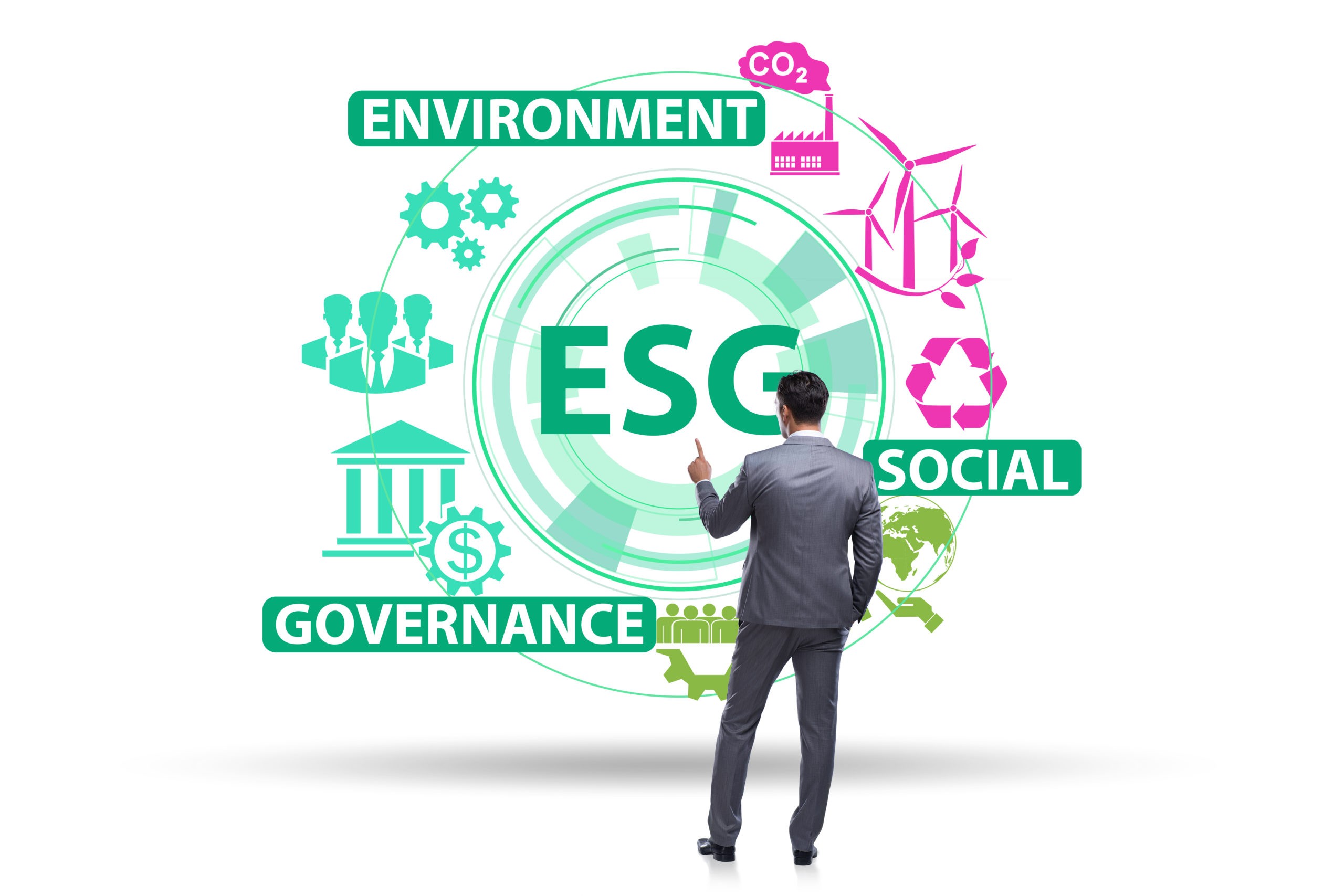Will ESG deliver in 2024?
Joss Murphy 04/01/2024 in Sustainable investing – Fund Calibre
4 January 2024

2023 may have been less grim for ESG-focused funds, but it was still no picnic. A number of high profile ‘green’ companies ran into problems, while an apparent cooling on net zero targets from major governments around the world made investors think twice. However, the problems of climate change, biodiversity loss and waste remain as acute as ever. Is it time to re-examine these funds?
It has been a tough period of performance for ESG and sustainable funds. LSEG Lipper data shows both global and emerging market sustainable funds still lead their conventional peers (by 2.4% and 6.9% respectively) over five years, but this significantly reverses over three years, with sustainable global funds lagging by 6.3%*. It’s a similar picture over one year.
This weakness can partly be explained by the rotation from growth to value. ESG funds tend to have more of a growth focus because they will often leave out ‘value’ areas, such as conventional energy or mining. There has been a bounce in fossil fuel companies in the wake of geopolitical tensions, including the wars in Ukraine and the Middle East, and a better performance from ‘value’ companies as interest rates have risen.
But this is not the full story.
The problem areas
There have also been some specific problems in certain sectors.

Offshore wind, for example, has struggled in the face of rising costs. Flagship windfarm group Orsted – a large holding for many environmentally-minded funds – has been forced to scrap a number of projects on cost grounds and has seen its share price fall over 40% over the past year**.
Electric vehicle demand has slowed, as higher interest rates have raised costs for consumers. This has had an impact across the value chain.
It didn’t help that share prices were already very elevated for some of these companies. Three years ago, ESG funds were the flavour of the month. Fund groups were rolling out fund after fund and a lot of money was chasing some of the flagship environmental solutions companies. Strong performance helped short-term fund flows, but left valuations high. The ESG sector is feeling the slow unwinding of that exuberance.
There is another, less tangible factor that may have dented flows into the sector. A recent survey from the AIC found a growing disillusionment with ESG investing generally. In 2021, almost two-thirds of respondents (65%) said they considered ESG when investing***. This fell to 60% in 2022, and 53% in 2023***. A crucial factor has been that investors aren’t convinced by the ESG claims coming from asset managers. A majority of all respondents (63%) say they are concerned about greenwashing, and it appears these fears have grown***.
This backlash can be seen clearly in flows into responsible investment funds. The most recent Investment Association data showed flows into responsible investment funds remained negative in October 2023, with outflows of £530 million, only marginally down on the record outflow of £544m in September****.
A turnaround for ESG
So far, so grim, but there are reasons to be more optimistic for ESG funds in 2024. A new disclosure and labelling regime from the FCA is coming into effect, after a lengthy engagement between the regulator, consumer groups and investment managers. This aims to tackle the lack of confidence in sustainability-related claims, introducing an anti-greenwashing rule, clear product labels and naming and marketing requirements.

It is early days, but these new rules should ensure that no-one is simply slapping an ESG label on a fund and claiming their investment process fully integrates ESG analysis. There will be robust measures in place to ensure that funds conform to a clear set of rules. This should create greater confidence among investors and could help reverse outflows from the sector.
At the same time, the environmental and social problems these funds seek to address remain acute. The path of climate change is well-documented, but worth remembering.
The National Centers for Environmental Information reports that the earth’s temperature has risen by an average of 0.14° Fahrenheit (0.08° Celsius) per decade since 1880, or about 2° F in total^. The rate of warming since 1981 is more than twice as fast^. To prevent warming beyond 1.5°C, emissions need to come down by 7.6% every year from this year to 2030^^. Every year targets are missed, the level of difficulty and cost to reduce emissions goes up.
Neil Goddin, a manager on the Artemis Positive Future fund points out that we are overusing our planet’s resources by around 1.75 times each year^^^. He adds: “Earth Overshoot Day – the date in a given year by which humanity’s demand for ecological resources exceeds what our planet is able to regenerate in a year – arrived on 29 December in 1970. By 2000 it was 23 September. This year (2023), it arrived on 2 August.”
He says that around a million plant and animal species now face extinction, with freshwater, marine, forestry, grassland and wetland environments all impacted. Deforestation is also a major concern, with an area of forest the equivalent to the size of Portugal lost each year. Agriculture is the key culprit, driving three quarters of all deforestation^^^^.
What about performance?
Performance appears to be turning round for a number of the ‘problem’ companies. They have outpaced the recent rally, with Orsted seeing its share price rise 14% over the past month alone**. EV demand is stabilising, which is good news for companies such as Umicore. It is also benefiting from government subsidies for battery production around the globe. The more ‘risk on’ environment seen since the start of November should be a better environment for ESG-focused funds, particularly those that seek to make a positive impact with their investments.
However, for many investors it won’t simply be about performance. For example, the Artemis Positive Future fund has saved 1.1 tonnes of carbon, recycled 450,000 drinks containers and helped treat 12,000 patients, per £1m invested in the fund in 2022*^. The Ninety One Global Environment fund estimates that the companies in which it invests avoided a total of 1.5 billion tonnes of carbon, while 78% of them avoided more carbon than in the previous year**^.
The JPM Climate Change Solutions fund is another option for investors keen to make a difference. It invests across sustainable food and water, recycling and reuse, sustainable construction and transport, alongside renewables and electrification.
For something a little different – and a potential option for income seekers – there is the VT Gravis Clean Energy Income fund, which invests in a portfolio of infrastructure companies, involved in the operation, funding, construction, generation and supply of clean energy. It currently has a yield of 5.6%***^.
Strong investment returns tend to come where there is a big problem to be solved. This is not just climate change, but deforestation, biodiversity destruction and waste management – creating real opportunities for companies with the right solutions. This is a long-term theme that has suffered a short-term dislocation. It should present a major opportunity to investors who are willing to be patient.
*Source: LSEG, Everything Green Flows, Q1-3 2023
**Source: Stockopedia, data at 3 January 2023
***Source: AIC, ESG Attitudes Tracker, 9 October 2023
****Source: Investment Association, 5 December 2023
^Source: National Centers for Environmental Information, 12 January 2023
^^Source: UN environment programme, facts about the climate emergency
^^^Source: The World Counts, 7 December 2023
^^^^Source: Artemis, 12 December 2023
*^Source: Artemis Positive Future, impact highlights in 2022
**^Source: Ninety One Global Environment Impact Report, July 2023
***^Source: Gravis Capital, cumulative performance to 30 November 2023
Please Note:
This article was first published by Fund Calibre and is provided for information only. The views of the author and any people quoted are their own and do not constitute financial advice. The content is not intended to be a personal recommendation to buy or sell any fund or trust, or to adopt a particular investment strategy. However, the knowledge that professional analysts have analysed a fund or trust in depth before assigning them a rating can be a valuable additional filter for anyone looking to make their own decisions. Past performance is not a reliable guide to future returns. Market and exchange-rate movements may cause the value of investments to go down as well as up. Yields will fluctuate and so income from investments is variable and not guaranteed. You may not get back the amount originally invested.
Please speak to Ethical Offshore Investors or your personal adviser BEFORE you make any investment decision based on the information contained within this article.
At Ethical Offshore Investments, we can access the funds mentioned in this article on the various offshore investment platforms we offer. We do NOT CHARGE any additional entry and/or exit fees to purchase these funds for our clients.
As we aim not to use commission paying funds, we will access the lowest charging version of the managed fund that is available on the relevant platform…… resulting in more of the investment growth staying in your pocket.
Speak with Ethical Offshore Investments to learn how you can save on your investments costs
Socially Responsible Investing – Ethical Business Standards
